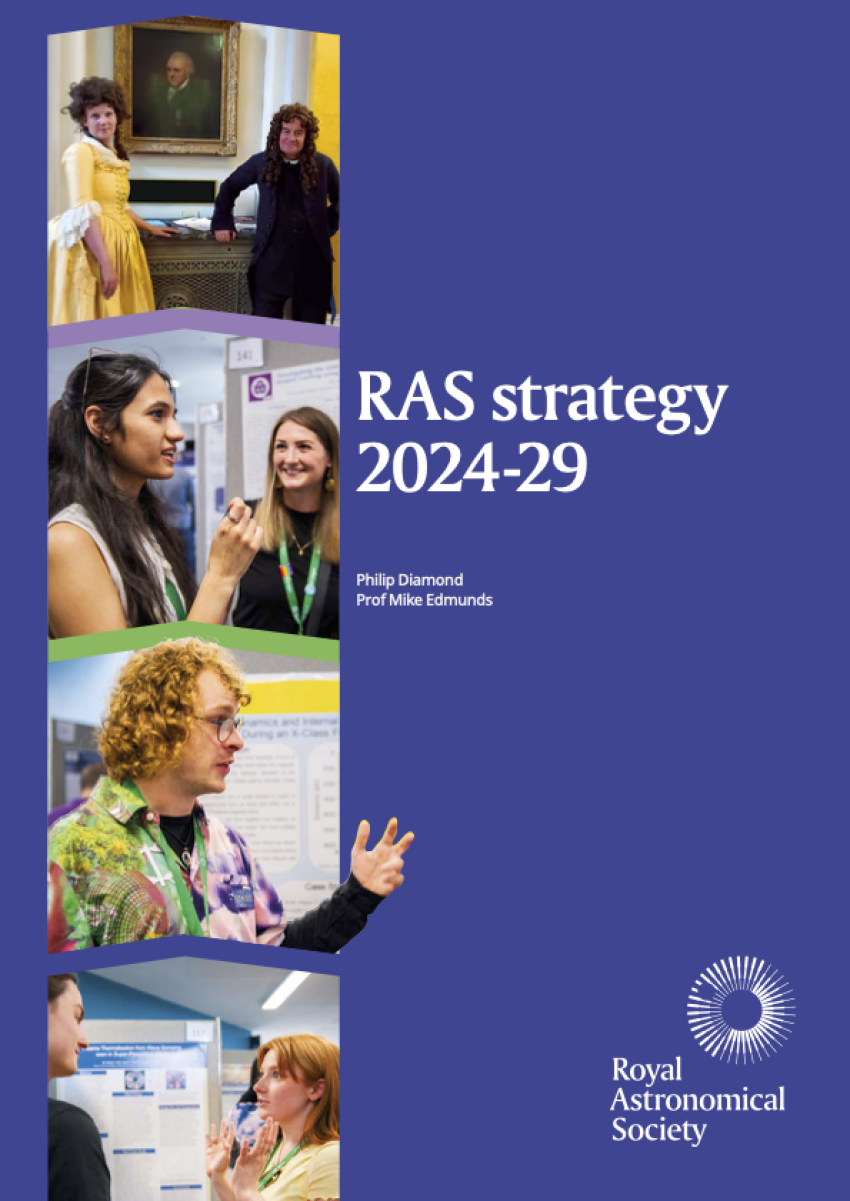Bold new plans to strengthen the Royal Astronomical Society’s reputation as the pre-eminent voice on astronomy, geophysics and solar-system science have been set out in a new five-year strategy launched today.
It puts members “at the front and centre of everything we do”, aims to inspire the next generation of scientists and embodies more than 200 years of history that began when Sir William Herschel became the Society’s first president in 1820.
At the strategy’s heart is a vow to remain passionately curious about the Universe.
The RAS will also celebrate and encourage diversity, share knowledge and expertise to the benefit of humankind, and continue to champion the scientific discoveries of the future.
These aims are set out alongside the Society’s core strategy and five priority areas, including meeting the needs of members, creating inspirational education and outreach programmes and improving the impact of the organisation’s world-class library and archive.
The strategy, which was launched at the Society’s Annual General Meeting on 10 May 2024, will be used to underpin decision-making over the next five years.
Its publication comes two months after the RAS and four other Learned Societies agreed a deal with the Government on a 999-year leasehold for their headquarters at Burlington House in the heart of London’s Piccadilly.
Philip Diamond, chief executive of the RAS, said the new strategy “provides a range of salient objectives against which to deliver in the coming years”.
“It is also timely that it follows so soon after the news of our long-term occupancy of Burlington House and the exciting opportunities that affords us,” he added.
“I am pleased also that the strategy sets out for the first time a clear statement of our values, including how we aspire to behave both individually and collectively.”
As part of the strategy, which will run from 2024 to 2029, the RAS will continue to:
- provide a learned and professional membership Society
- hold regular scientific meetings
- publish articles in its world-leading journals
- give policy advice to the Government
- award grants and medals - including the prestigious Gold Medal previously won by the likes of Albert Einstein, Edwin Hubble and Stephen Hawking.
Professor Mike Edmunds, whose two-year term as president of the RAS has just come to an end, said: “I believe the new strategy gives a clear vision of what we want to achieve.
"As I hand over the baton to the next President, I look forward to watching the Society flourish as it works towards its objectives. It benefits everyone for us to remain a trusted source of information, opinion and professional standards.”
The new five-year strategy is available to view here. The RAS has also put together a delivery plan to support its strategy. The hope is that this will significantly enhance the Society's impact and drive its mission forward. It can be viewed here.
Media contacts
Sam Tonkin
Royal Astronomical Society
Mob: +44 (0)7802 877700
Robert Massey
Royal Astronomical Society
Mob: +44 (0)7802 877699
Images and captions
Caption: The Royal Astronomical Society has launched a new strategy which will help underpin decision-making for the next five years.
Credit: Royal Astronomical Society
Notes for editors
About the Royal Astronomical Society
The Royal Astronomical Society (RAS), founded in 1820, encourages and promotes the study of astronomy, solar-system science, geophysics and closely related branches of science.
The RAS organises scientific meetings, publishes international research and review journals, recognises outstanding achievements by the award of medals and prizes, maintains an extensive library, supports education through grants and outreach activities and represents UK astronomy nationally and internationally. Its more than 4,000 members (Fellows), a third based overseas, include scientific researchers in universities, observatories and laboratories as well as historians of astronomy and others.
The RAS accepts papers for its journals based on the principle of peer review, in which fellow experts on the editorial boards accept the paper as worth considering. The Society issues press releases based on a similar principle, but the organisations and scientists concerned have overall responsibility for their content.


